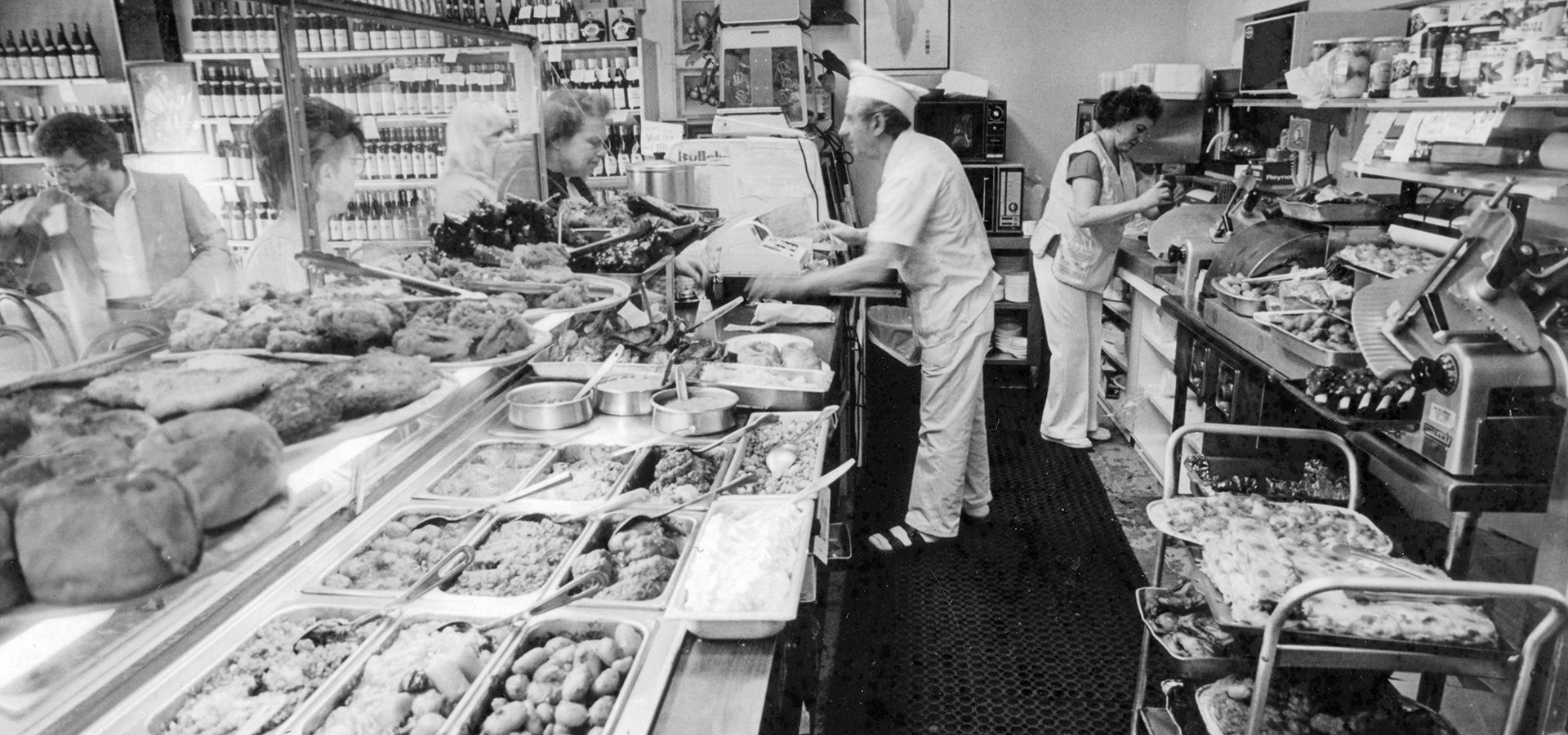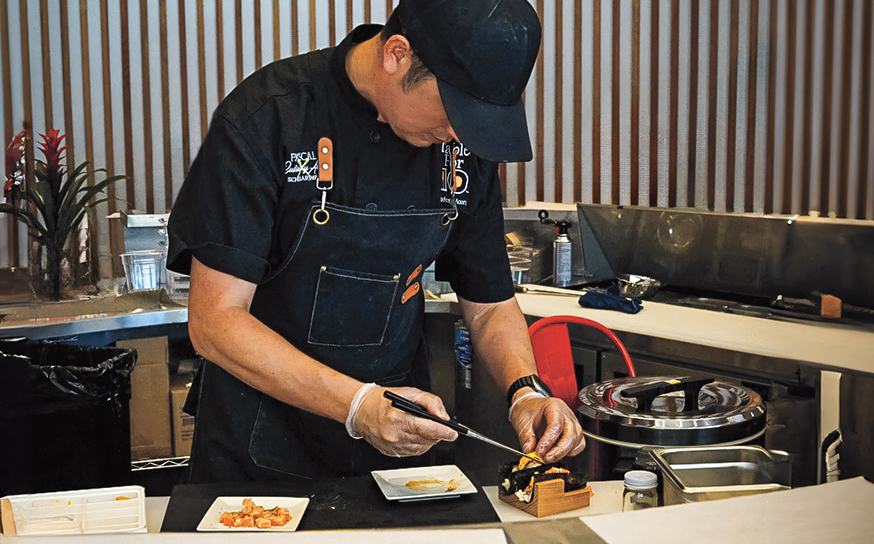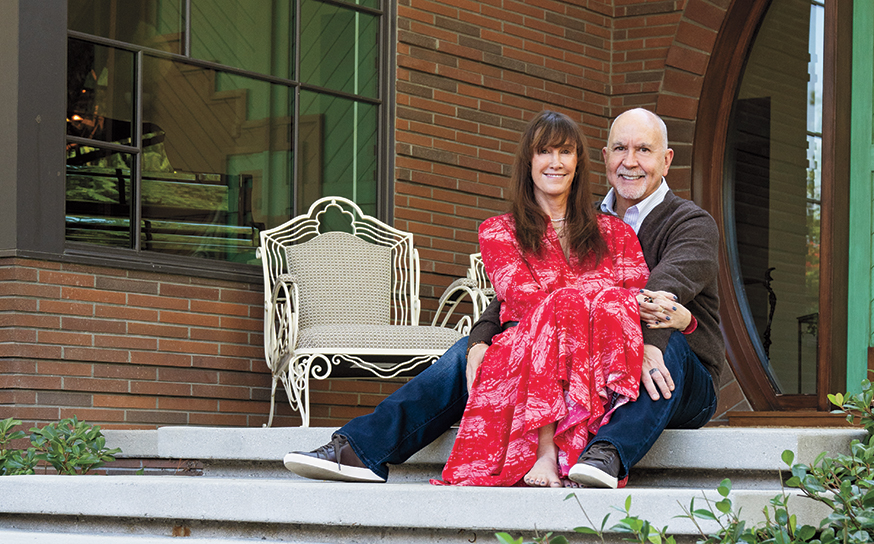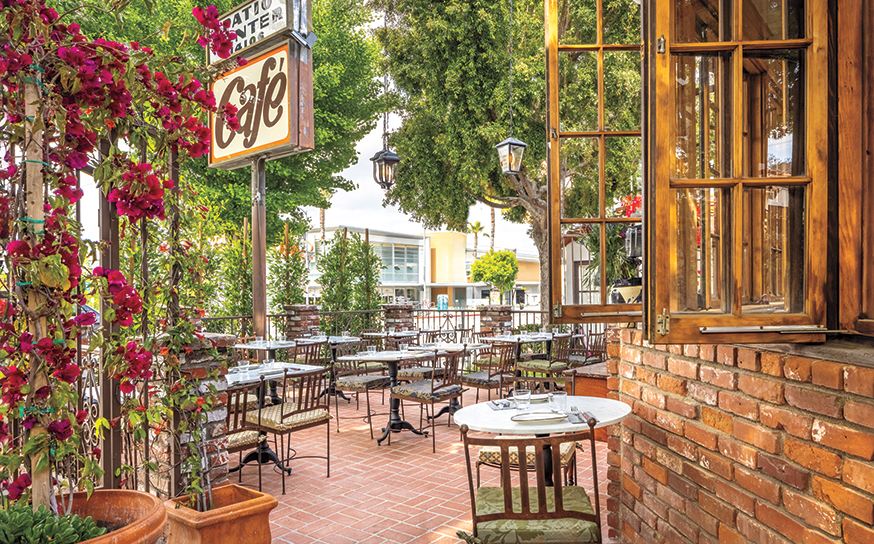I’ll Have What She’s Having at The Skirball Cultural Center Celebrates Delis
It’s the whole schmear.
-
CategoryEat & Drink, People
-
Rena and Harry Drexler serving at Drexler’s Deli in North Hollywood. It was at the corner of Whitsett Avenue and Burbank Boulevard, an area that is still home to a sizable Jewish community that keeps kosher. Rena was a survivor of Auschwitz, liberated from the concentration camp on her 18th birthday. She met Harry while searching for surviving family. They moved to SoCal in the early 1950s, and she went on to be a popular speaker in schools, where she shared her experiences as a Holocaust survivor. She said that working at the deli and serving customers taught her how to trust people again.
Above
Whether it’s a stacked pastrami sandwich, steaming bowls of matzo ball soup, or the classic scene in When Harry Met Sally when Meg Ryan gets a bit theatrical sitting across from Billy Crystal (with her shenanigans eliciting the ‘I’ll have what she’s having’ line from another diner), the Jewish deli experience is ingrained in American menus and pop culture.
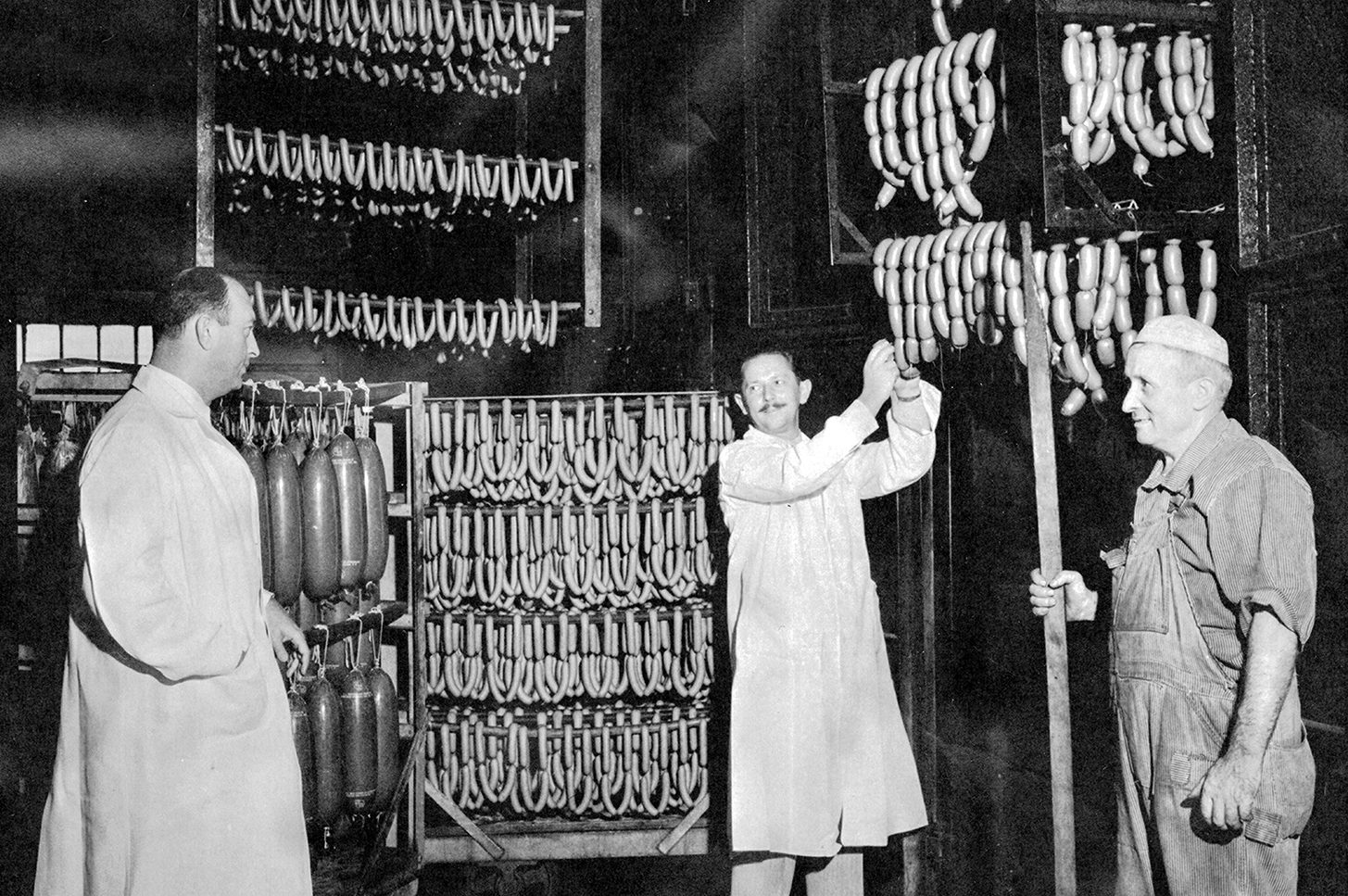
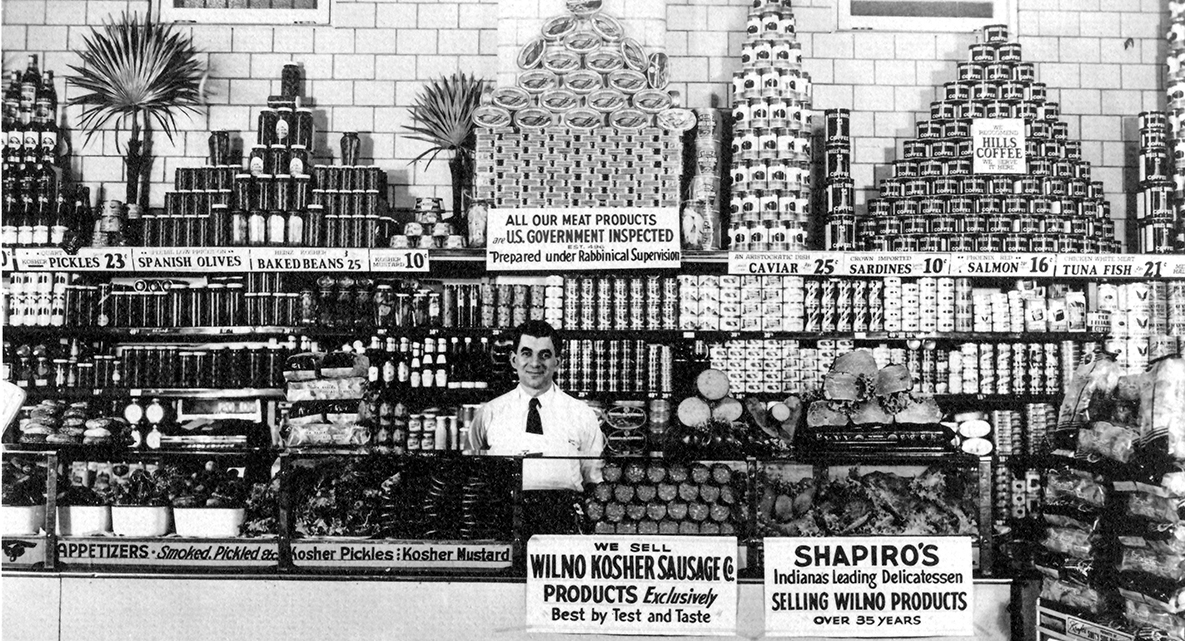
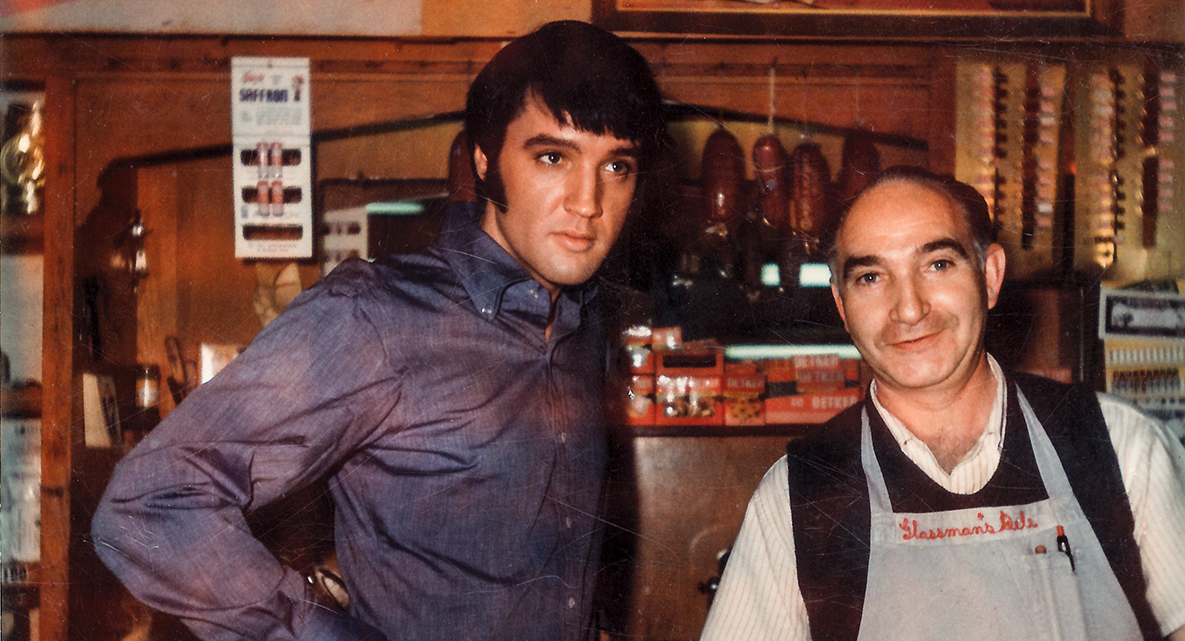
Above: A street vendor against the background of a kosher sausage manufacturer on New York City’s Lower East Side. As Jewish immigrants established restaurants, these foods went from the street to the table, where they came to be savored by generations as classic American fare. As Jewish immigrants from across Central and Eastern Europe came to the U.S., they brought their foodways, which they adapted to fit available ingredients and new technologies here. Mechanical bread slicers, industrial-scale kosher beef production, and refrigeration all played important roles in this transformation of regional European Jewish foodways into what we now recognize as deli classics. | James Reuel Smith, “45 E. Houston Street, New York City,” undated [c. 1897-1901].
Above bottom right: Elvis Presley with deli employee Joe Guss at Glassman’s Deli and Market, LA, 1969. Glassman’s (1930–79) was located on Western Avenue in Hollywood, next to an adult theater. The site eventually became home to a butcher shop. Some scenes from Elvis Presley’s final movie, Change of Habit (1969) were filmed here. | From the Bonar Family Collection
•••
The I’ll Have What She’s Having exhibit at the Skirball Cultural Center plays off both the culinary and cultural aspects with an artful display of vintage photos and menus, neon signs, uniforms and other colorful artifacts. As its curators explain, the exhibit aims to use food to explore how Jewish American culture is created, maintained and reborn across generations.
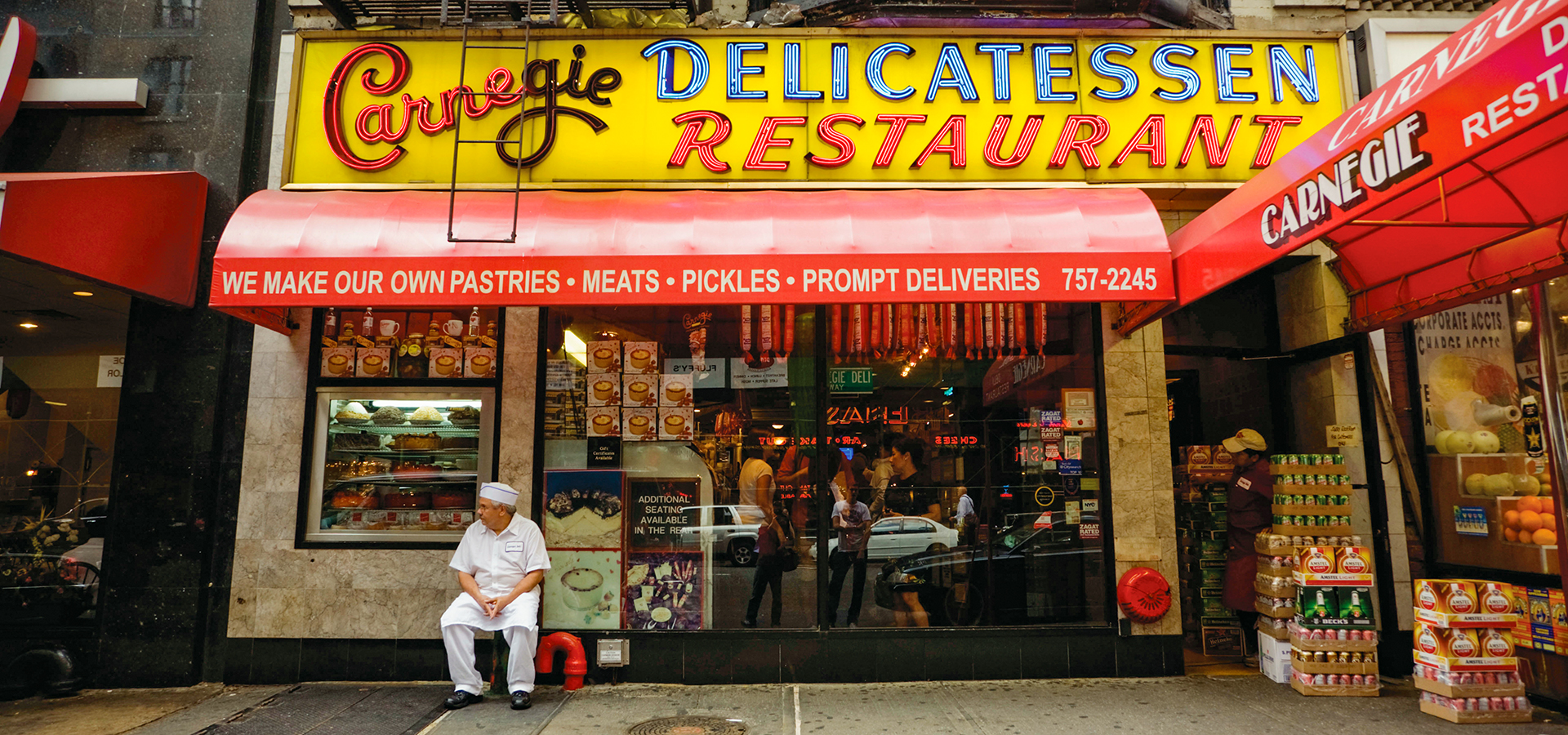
“The exhibition explores how Jewish immigrants imported and adapted traditions to create a uniquely American restaurant,” says exhibit co-curator Cate Thurston. “More than a place to get a meal, the Jewish deli is a community centered in food that demonstrates the important contributions immigrants have made to American society.”
Throughout the past century, the casual communal spaces, filled with the familiar smells of hot food, have created warm and congenial atmospheres where relationships and memories have been formed.
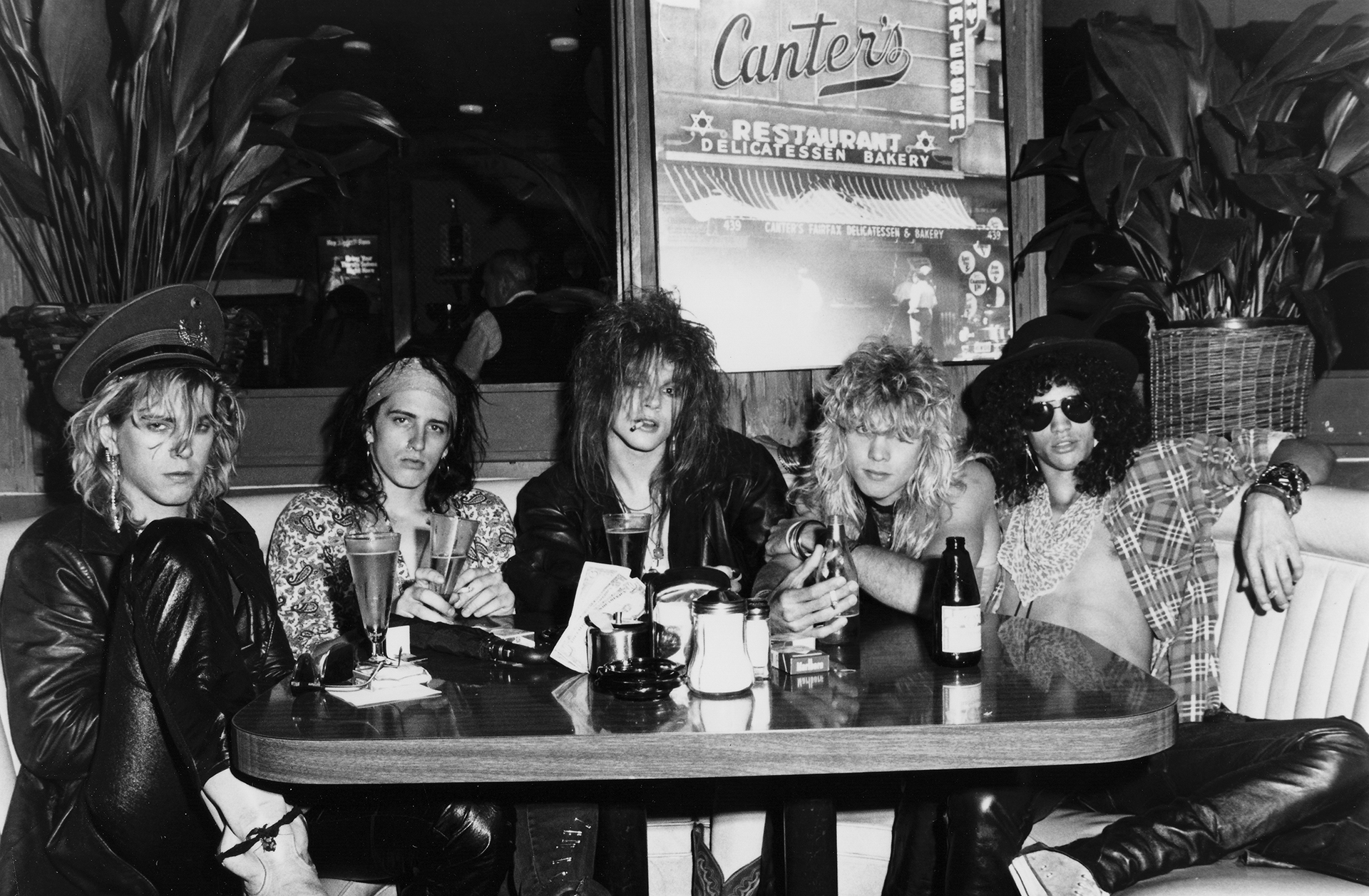
The heavy metal band Guns N’ Roses breaks for a meal at Canter’s Deli in the 1980s. The deli originally opened in 1931 in Boyle Heights, then moved to its current location on North Fairfax in 1953
“Workers and patrons come to know each other over years or even decades—unofficial families brought together by food. These images exemplify the joy and hospitality, as well as the characters, that make the deli more than a place to get a meal, but rather a community forged in food,” says co-curator Lara Rabinovitch.
Though the focus is national in scope, some Valley spots are featured in the exhibit. Local artifacts include matchbooks from Art’s in Studio City, Brent’s in Northridge, Solley’s in Sherman Oaks, and Eddie Saul’s in Encino.
Here, we share the stories behind some of the photographs in the exhibit, which runs through September 4.
Join the Valley Community






